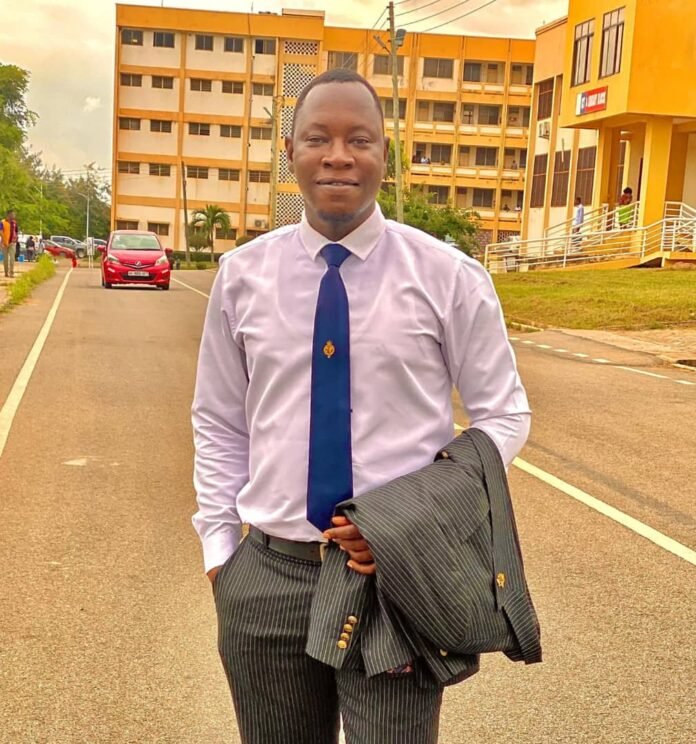Ghana is admired across Africa for its democracy, its peaceful transfers of power, and its vibrant political space. As a secular and multi-lingual country with more than a hundred ethnic groups living together under one flag, we have every reason to be proud of our unity. Yet, there is one troubling practice that continues to undermine this achievement. thus,tribal politics. It resurfaces during every election season, offering politicians temporary convenience but leaving permanent scars on our democracy.
The recent uproar over tribal remarks involving Dr. Bryan Acheampong and Dr. Mahamudu Bawumia is not a new development. It is, in fact, the continuation of a dangerous trend. What we see today is the direct outcome of tactics used in the past, particularly during the 2024 elections.
Dr. Bawumia, for instance, leaned heavily on sectionalism and bigotry politics during his campaign. In the Zongos and in his home region of North East, he presented himself not only as a politician but as a Muslim and a “son of the soil.” He suggested that these identities should be enough to win him votes. Yet, ironically, he lost more votes in the Zongos than any other NPP candidate.
Beyond the rhetoric, this approach spilled into action. During the NPP primaries in 2023, reports emerged of his supporters assaulting polling agents of rival aspirants in his home region. This even gave rise to Kennedy Agyapong’s now famous “I will give you a showdown” remark. In many constituencies, opponents received zero votes, raising serious questions about intimidation and fairness. It is therefore no surprise that when Bryan Acheampong and Kennedy Agyapong turned to tribal bigotry in their contest against Bawumia, they were merely playing by the same rules he himself had set. This is the danger of tribal politics: once introduced, it becomes a weapon everyone else picks up. What happened to politics of ideas? Who brought us here in the first place? If former President Nana Akufo Addo, a founding member of the NPP, can publicly tell a whole constituency that, he denied them development because they refused to vote for his parliamentary candidate, then your guess is as good as mine.
Let us be clear. Identity politics is natural in every democracy. Akans have traditionally leaned toward the NPP, Ewes toward the NDC, and the northern regions have often supported the NDC. Greater Accra, Central, and Bono remain swing areas. Even in advanced democracies like the United States, parties have strongholds. But tribalism is different. It poisons our politics by convincing people that only “our tribe” or “our religion” deserves power. This is not identity politics, it is division, and it is dangerous.
The consequences for Ghana are already visible. We are battling tribal and chieftaincy conflicts in most parts of the north and south. Adding tribal politics to this fragile situation is like pouring petrol on fire. It breeds suspicion, resentment, and sometimes violence. Worst of all, it chips away at the very sense of unity that holds us together as one nation.
As the largest opposition party, the NPP must resist the temptation to fuel this fire. Ghana’s future should be built on development, education, jobs, opportunities and not on who belongs where. A nation divided by tribe will never progress, and a party that normalizes tribal politics risks undermining its chances of winning back the trust of Ghanaians.
The truth is simple, tribal politics may serve a few politicians in the short term, but it harms the entire country in the long run. If the NPP truly wants to regain power and lead Ghana into a stronger future, which already looks difficult given its abysmal performance in recent years,it must rise above this. Campaigns must be built on ideas, not identities. Policies, not tribes, must drive the agenda. And most importantly, the party must set the example by refusing to tolerate tribal appeals within its ranks.
This is not just a call from one citizen; it is a plea for the soul of our democracy. The politics of tribe must die, and in its place, we must embrace the politics of ideas, development, and a shared national destiny.
Yours sincerely,
Sir Hamza Apowda
(De Beggars Voice)




